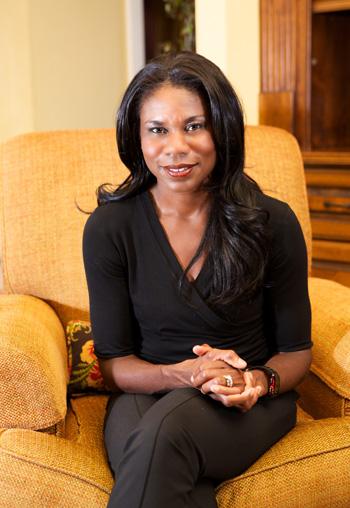
Republican candidate Lisa Fritsch
By Alan Bean
I didn’t realize that Greg Abbott had a Tea Party challenger, but he does. Her name is Lisa Fritsch, a Margaret Thatcher Conservative who has been compared to the charismatic Michelle Bachmann.
Fritsch has little chance of unseating Greg Abbott. She has almost no political experience and little financial support. Every Republican voting in the primary knows about Greg Abbott; few will be familiar with Fritsch.
This primary election may just be the Tea Party conservative’s way of introducing herself to the Texas public, but, make no mistake, this woman has a future in Texas politics.
Greg Abbott won the grudging primary endorsement of the Dallas Morning News, largely because he has no real opposition. But the DMN added a cautionary note: “we wish Abbott, 56, would listen carefully to one primary opponent, Lisa Fritsch, who speaks with precision and passion about recasting the GOP as a true opportunity party built from conservative values.”
If you are surprised to see the Tea Party lining up behind a black woman, you shouldn’t be. Fritsch is the kind of minority candidate conservatives adore, largely because she tells them what they want to hear. At least, she appears to. Fritsch believes, for instance, that welfare is an abomination and that undocumented immigrants should be deprived of any form of public assistance. She opposes gun control measures, and is a died-in-the-wool small government conservative.
Moreover, she believes that the battle with liberal democrats is spiritual, not political. She is primarily thinking abortion when she says this, not surprisingly, but, like many politicians on the right, she feels that God has called her to undertake a spiritual quest.
If the Tea Party has a problem with racism (and I think it does) Fritsch’s popularity suggests that it isn’t that old school, Jim Crow, “I love the Nigra, in his place” kind of racism.
The form of bigotry we are currently dealing with divides the population into makers and takers and argues that takers could be makers if they got their attitude right. That being the case, any attempt to assist the working poor will inevitably create dependency.
Lisa Fritsch believes all of that, but she can’t be a racist because . . . well, just look at her. She is black, beautiful, articulate and well-groomed, and if she could do it, anyone can. Conservatives love black people who look and think like Lisa.
Not many African Americans in Texas are jumping on the Lisa Fritsch bandwagon, of course. Examine her pictures and you will see the Tea Party darling surrounded by a sea of white. To the Tea Party faithful, this proves that your standard issue black person is brainwashed and dependent.
And that, ladies and gentlemen, is a racist conclusion.
But Lisa Fritsch is a genuine black woman, which means her brand of conservatism differs considerably from the default mode. She believes Republicans can’t survive unless they take minority voters seriously, and that means going into predominantly black and Latino neighborhoods and engaging real men and women in serious discussion. It also means providing real opportunity for people who have been alienated from the Texas economic mainstream.
There’s nothing liberal about these sentiments, but they set her apart from her white Tea Party (and Republican) supporters far more than she, or they, realize. To date, conservative white people have shown zero interest in entering into serious dialog with ordinary black and Latino Americans, nor are they committed to providing a hand-up to men and women who are enmeshed in poverty.
To be fair, I haven’t run into that many white Democrats who are serious about minority-majority dialog or providing opportunities, in addition to public assistance, to poor people. White Democrats understand, intellectually, that their future depends on solid minority support, but too many take this support for granted.
How wonderful it would be if both major parties, in Texas and across the nation, were passionately engaged with poor African American and Latino voters because they genuinely believe their brand of politics can make a positive difference.
That’s why I would love to see a woman like Lisa Fritsch get a chance to work her magic in poor communities. She would be transformed by the encounter, and so would Texas. Minority Texans already constitute a numerical majority in the Lone Star state, but thus far that potential advantage hasn’t carried over to the ballot box. It might take ten years, and it might take twenty (depending on Latino voting rates) but sooner or later neither party will be able to control Texas politics without taking the minority population seriously.
My hope is that it won’t take another decade or two to move beyond the Republican we-can-win-with-white strategy, or the tendency of white Democrats to take the minority vote for granted. A candidate like Lisa Fritsch could spark a series of long-overdue conversations.
If you want to learn more about Ms. Fritsch (from a decidedly Tea Party perspective) you can find an extensive and revealing article here.
